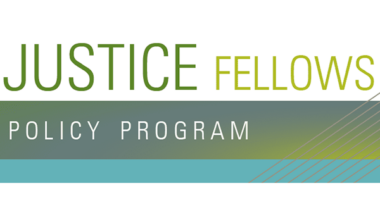A Call to Action This Black History Month
Every Black History Month is an opportunity to reflect on how far we have come and how much work is yet to be done. For me, this Black History Month takes on even more meaning.
For generations, our history has been marked by our quest for equality, particularly in education. This year, we will celebrate the 70th anniversary of Brown v. Board, the historic Supreme Court decision in 1954 that denounced school segregation. This seminal case exemplifies how advocacy can spur progress.
But these days, education equity is under attack like never before. And it seems as if we are moving further away from the promise of Brown to provide all students with an equal opportunity to obtain knowledge that unlocks opportunities and unleashes potential.
Recently, I read about the journey of Sterling, a 10th grader who has passed through the Boston public school system, even though he reads at a third-grade level. He struggles to make sense of even basic text messages on his cell phone, putting at risk his goal of joining the Marines. Unfortunately, Sterling’s story is not unique. With dismal literacy rates across the country, many school systems continue to fail our nation’s students, putting them at risk of not being able to fulfill their dreams.
Providing a high-quality education to all students can be done. It starts with evidence-based, equity-centered strategies that are proven to help our students succeed in school and in life.
At EdTrust, we have waged numerous campaigns in recent months to highlight the inequities that exist, including our science of reading work in New York, our student voice work in Louisiana and Texas, and our work with our Justice Fellows. We have scored a historic win for equitable funding in Michigan, secured victories for early learning programs, improved discipline policies in California, and partnered with One Million Teachers of Color’s campaign to call for a more diverse teacher workforce. Our Can’t Be Erased social media campaign, which took a stand against book bans and the erasure of stories about people of color, won a prestigious Anthem Award in the Community Voices category.
In our push for equity, we should not be afraid to focus on race — because, frankly, other people are doing it in a way that does not respect our excellence. In recent months, faculty, staff, and students across the country have been forced to reckon with efforts to weaken diversity, equity, and inclusion. For example, Florida Board of Education has barred its 28 public colleges from using state and federal funds for DEI programs, activities and policies.
This is particularly concerning for students and educators in the wake of recent Supreme Court decisions that rolled back affirmative action, as well as the disproportionate levels of unfinished learning and mental health challenges brought on by the pandemic. In a country blessed with as many resources as ours, Black and Latino students, teachers, and administrators should have the support and resources they need to achieve their full potential. That means safety, connectedness, positive relationships, and opportunities to participate in culturally sustaining curricula and environments.
As we acknowledge the challenges of today, we must continue to amplify the voices that are too often silenced to create a more equitable and just society. We must invest in the potential of our students and our future leaders. This Black History Month, let’s march toward meaningful change to create a nation where people of color are treated with dignity and respect.
I admit the path to improving our schools may seem exceptionally bleak at times, especially in the age of social media, where cultural debates often play out in the public sphere and existential threats to student-centered equity continue to grow. But we must stay committed. Let’s learn from the struggles, resilience, and triumphs of the activists who have come before us. The road to progress has been paved — and so, we must push forward.







